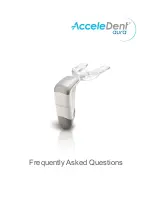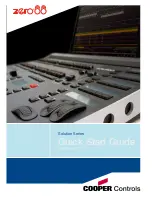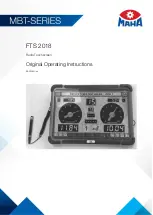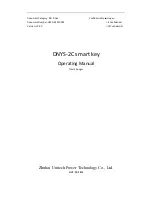
SK
LINE
sportkoncept
17
The data that are displayed on the LEDs (C) during exercise are as follows:
-
SPEED
: This shows an estimated value of the linear velocity at which a bicycle would be travelling based
on the user’s pedalling rate. The value is displayed in kilometres per hour (km/h)
-
RPM
: This shows the current pedalling rate during exercise. It indicates the number of full turns that the
crank makes in one minute (RPM).
-
TIME
: This shows the time that has elapsed since you started the exercise or, if a time limit has been
established, the amount of time left before the exercise finishes. The time is displayed in minutes and
seconds (mm:ss).
-
DISTANCE
: This shows the distance that you have travelled since beginning the exercise. The distance is
calculated by using the estimated linear velocity (SPEED) and the units displayed are kilometres and
hectometres
-
CALORIES
: This shows the estimated number of calories that have been burnt off up until now. This
calculation is based on the energy being produced and the weight and age values provided by the user.
-WATTS
: This shows the amount of energy currently being produced during the exercise. This calculation is
based on the exertion level at which the user is working and the pedalling rate. The information is displayed
in Watts.
-
PULSE
: This shows the user’s heart rate, assuming that this information can be accessed through the
hand-grip sensors or the telemetric chest band. When both of these are used together, priority is given to the
telemetric chest band. For more information about heart rate refer to the section entitled: Pulse
measurement; chest band and hand-grip
KEYPAD.
The function of each key is listed below. See Figure 3
.
The electronic monitor includes an easy-to-use keypad. This keypad consists of Fan keys ( E ), numeric
keys ( F ) and function keys ( G ).
-
Fan keys
(E) –
Off / On
;
Low
(minimum speed);
High
(maximum speed).
-
Numeric keys
(F) - (1- 0) are used to enter the data requested by the monitor.
-
Function keys
(G) –
reset; level
↑
; level?; enter; pause; stop; quick/start.
are used to select a particular
exercise, enter requested data, control exercise exertion levels and to finish the exercise.
-reset.-
Reset key. This is used to erase the data that have been entered into the monitor when selecting
a program.
-level
▼
.-
Key for decreasing exertion level. When pressed during exercise this key will decrease the
exertion level by one machine setting. During the selection of pre-programmed profiles, it is used to move on
to the next profile screen.
-level
▲
.-
Key for increasing exertion levels. When pressed during exercise this key will increase the
exertion level by one machine setting. During the selection of pre-programmed profiles, it is used to move
back to the previous profile screen
.
-enter.-
Selection and validation key. This is used during pre-programmed profile selection to select a
profile, confirm data that have been entered and to start the exercise. It is also used during user profile
programming to confirm the exertion level settings for each minute.
-pause.-
Pause key. If this is pressed during a session, the exercise is interrupted and the exercise
chronometer is halted. To restart the exercise chronometer press the
pause
key again or continue
exercising. There is a 45 second time limit in pause mode, after which the exercise will be taken as finished
and the monitor will switch itself off.
If, in pause mode, the STOP key is pressed then the exercise will be taken as finished.
-
stop.-
Stop key. If this is pressed during the session, the exercise will be taken as finished and exertion
settings will drop to minimum level. A summary of all the exercise data will be displayed and it will then
return to the start screen.
Hold the STOP key down for 3 seconds in Start/Ready mode, and the console will automatically change to off
status with a beep if the POWER option under project mode is on.
Summary of Contents for H890
Page 3: ...SK LINE LINE LINE LINE sportkoncept 3 Fig 2 Fig 3 Fig 4 Fig 5 ...
Page 4: ...SK LINE LINE LINE LINE sportkoncept 4 Fig 6 Fig 7 Fig 8 Fig 9 Fig 10 ...
Page 32: ...SK LINE LINE LINE LINE sportkoncept 32 H890 ...
Page 37: ...SK LINE sportkoncept Fig 1 ...
















































